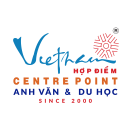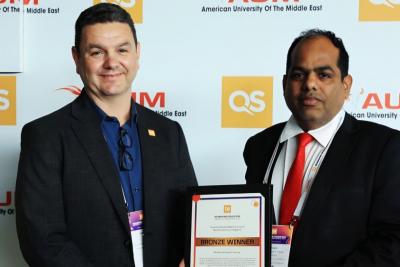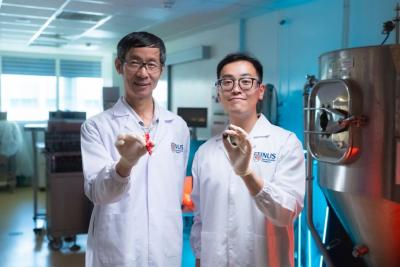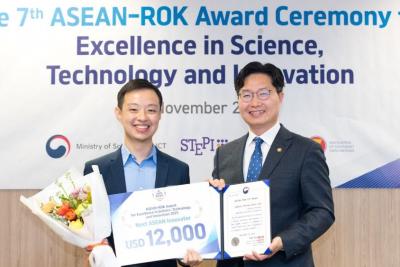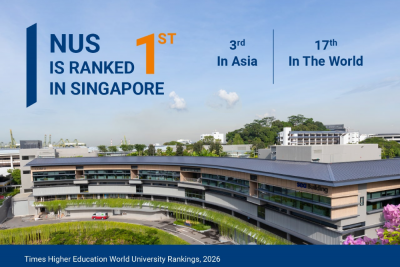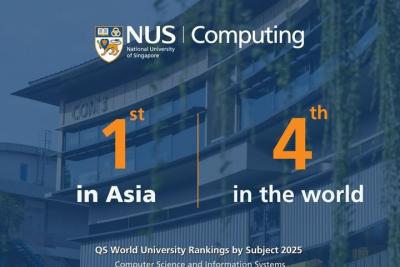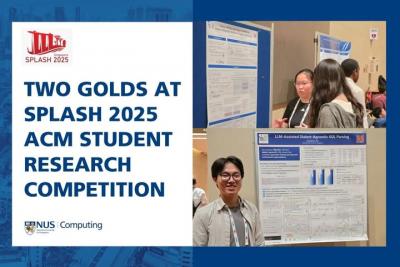Các nhà nghiên cứu NUS đã giới thiệu các giải pháp môi trường sáng tạo tại Singapore International Water Week 2024
The NUS Pavilion at the recent Singapore International Water Week 2024 demonstrated the University’s strength in harnessing its deep capabilities in environmental sciences and engineering to develop groundbreaking solutions for environmental challenges.
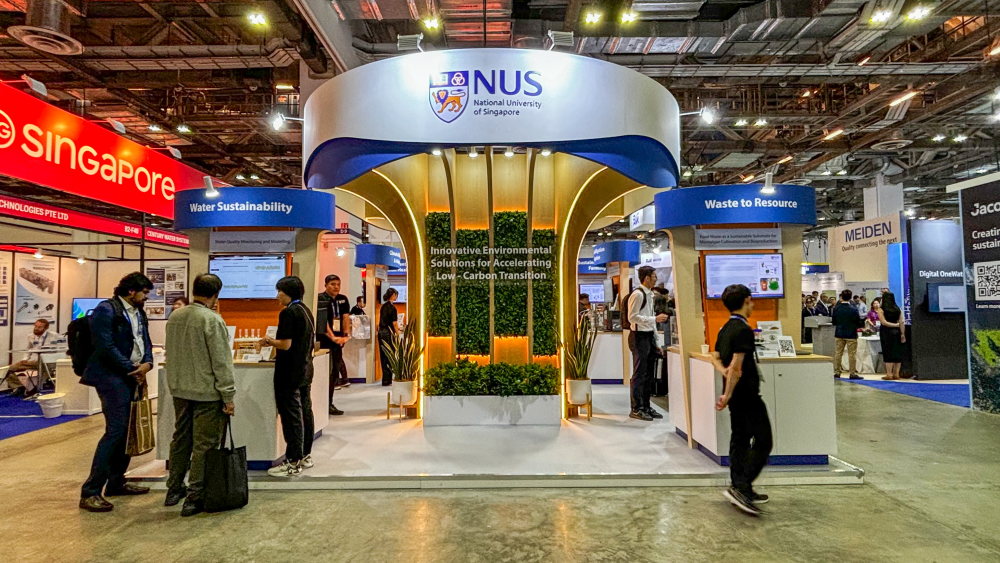
NUS researchers showcased their innovative environmental solutions at the recent SIWW
Imagine a special building ‘envelope’ that can be used to generate solar energy yet lets in enough sunlight to grow edible crops like lettuce, or a special reactor that can convert carbon dioxide (CO2) generated from wastewater treatment into valuable chemicals like ethanol.
Led by the NUS Environmental Research Institute (NERI), our researchers presented an impressive suite of projects at this year’s Singapore International Water Week (SIWW), which was held at the Marina Bay Sands Expo and Convention Centre and open to the public from 19 to 22 June.
Here, we highlight some exciting projects displayed at the NUS Pavilion. Besides sharing the University’s recent research breakthroughs with visitors from around the world, NERI also signed two Memorandums of Understanding (MOUs) in the area of chemical analytics and the commercialisation of emerging water-related technologies.
Harvesting solar energy while optimising crop cultivation for tropical buildings
Can the facades of buildings in Singapore be used to generate energy as well as grow edible crops like oakleaf lettuce? A prototype of a tropical building ‘envelope’ by Dr Terrence Tan aims to do just that: improve the efficiency of clean energy production from solar photovoltaic (PV) cells and sustain the growth of vegetation for enhanced food production.
In pilot experiments, Dr Tan and his team from the Department of Architecture at the NUS College of Design and Engineering (CDE) found that the edible crops could still grow well despite being partially covered by the solar PV cells. The research team aims to scale up the prototype for testing on NUS campus to optimise the overall yield and placement of the PV pattern.
This project demonstrates how urban structures in Singapore and the region can be transformed into self-sustaining ecosystems, contributing to food security and renewable energy generation.

